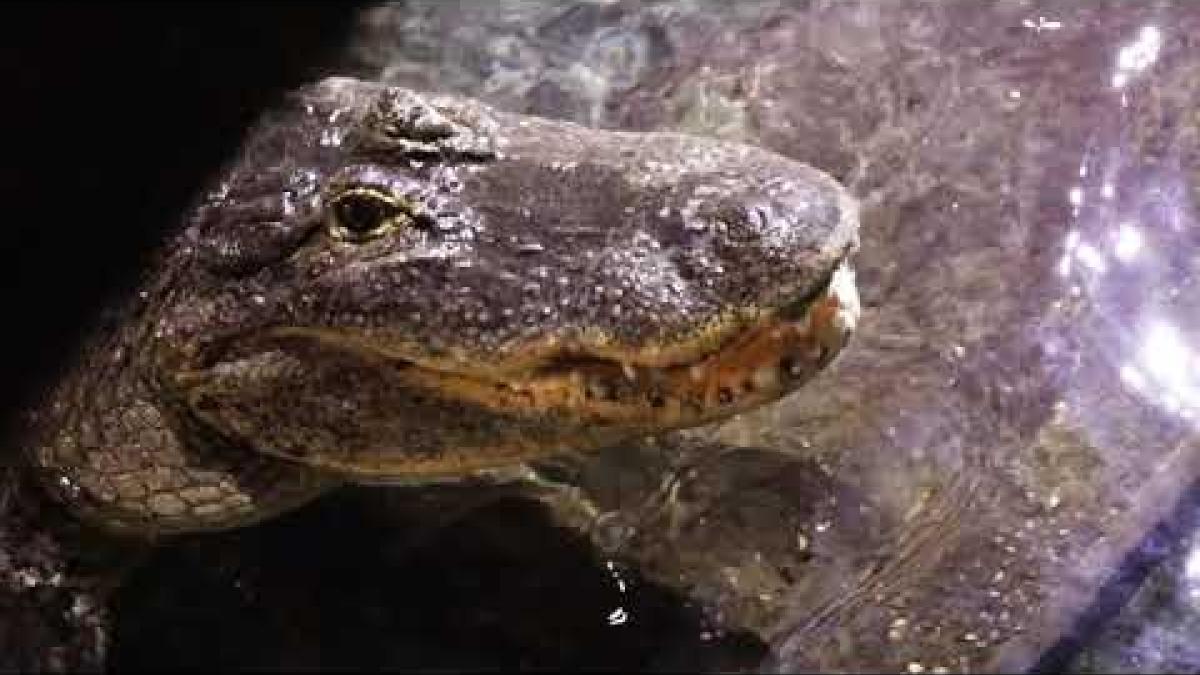Where to Find on Campus: Bayou, Mississippi River Center
The American Alligator can be found anywhere from southern Virginia to the coast of Florida and along the Gulf of Mexico. These short-legged animals can reach a speed of 20 mph in the water!*
Diet: An American Alligator’s diet consists of a variety of foods including rabbits, rats, fish, squid, or clams. While in captivity, keepers and veterinarians monitor the alligator’s behavior/appetite and body condition year-round. While an alligator may be offered food weekly during the summer months, their food consumption drops drastically in the cooler months, and they typically do not accept any food for several months.
Lifespan: In the wild, they can live anywhere between 35 to 50 years. In captivity, they tend to live 65 to 80 years.*
Size: The average female is nearly 10 feet, while the male average is four feet. There have been American Alligators that have reached 20 feet!*
Alligators and crocodiles are often confused. Here are a few differences between the two:
Alligators have a shorter, more rounded U-shaped snout than crocodiles.
Only the top row of teeth are visible when an alligator’s mouth is closed, while both the top and bottom teeth are visible on crocodiles.
Alligators mostly live in freshwater and brackish water, while crocodiles live in both saltwater and freshwater.
Conservation Story: Due to the alligator and crocodile often being mistaken for one another, the alligator is listed as threatened. American Crocodiles are endangered, while American Alligators are abundant in population. The government does not want hunters to confuse the two, and if a state allows hunting, it is heavily controlled. *
Did you know?
During hibernation, the alligator keeps just its nostrils above the water in the event the water freezes!*
Meet Mama: Our alligator, Mama, came to us from the Phoenix Zoo in 2003. Mama is a female and is believed to have been hatched in 1973. It’s likely she was kept as a pet while she was a smaller, younger animal and then relocated to a facility that could properly house her.
Some information on this page came from Animal Diversity Web.
Watch Mama and our Alligator Snapping Turtle eat!

